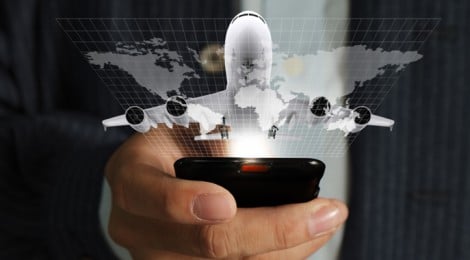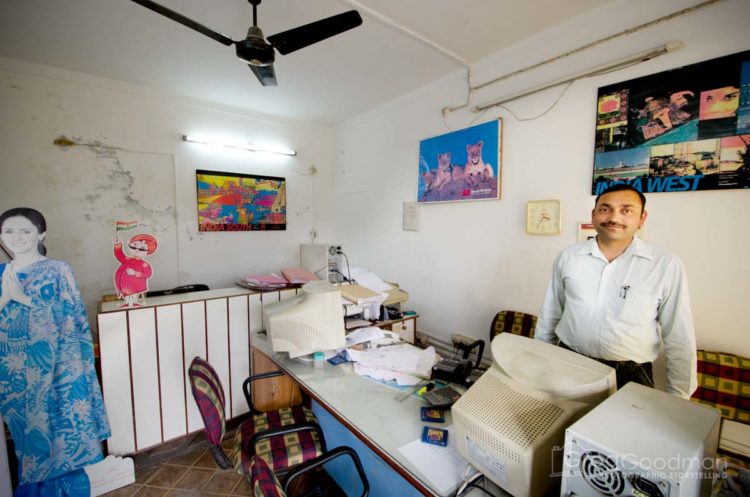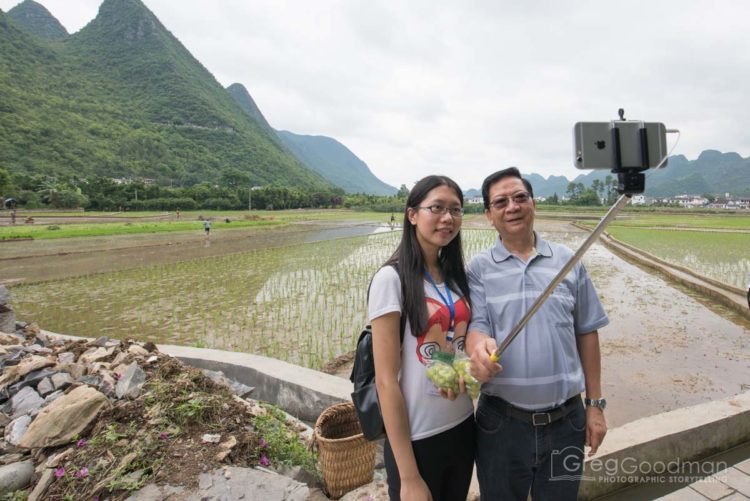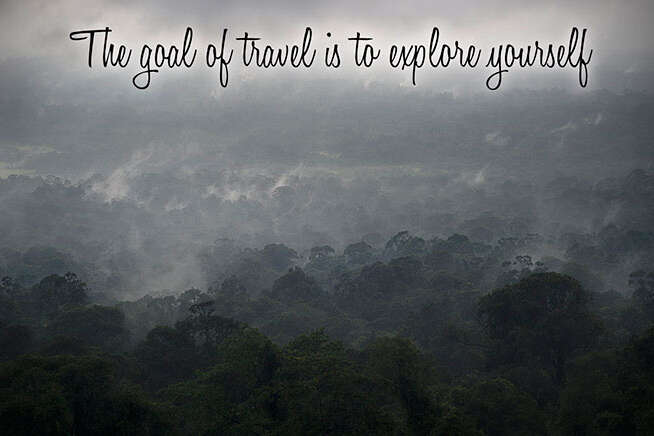GUEST POST OVERVIEW: I love technology: both at home and when I travel. However, I also find myself fighting a battle between playing with my gadgets and enjoying the sights.
For that reason, I leave my smart phone at home when I’m on the road… but, I do bring my laptop. It’s from that very laptop – in a hostel room in China – that I’m introducing the following post by my friend Nikolas. Enjoy!
We live in a technological world
“Look around you today and it’s rare to find someone who isn’t connected to some kind of technology.
Particularly in the travel industry, companies have been utilizing the latest technology to their advantage and connecting with customers no matter where they are.
Now recognized as one of the quickest ways for travel companies to cut through the rest of the noise and offer customers the most relevant deals, today’s technology is able to give people unique and customized travel experiences.
At the same time, these travel companies are profiting by being able to easily streamline their operations and cut costs by using big data.

Traveling in the digital age
Thanks to digital marketing, online travel companies have experienced an immense growth within the past few years.
In this competitive landscape, travel companies are increasingly focusing on improving their online visibility to ensure they can connect with more travelers. By leveraging advanced SEO strategies, they can appear more prominently in search results, making it easier for potential customers to find them amidst a sea of options.
Today’s technological gadgets, such as smartphones and the new Apple Watch, even have the ability to act as a digital check-in booth and boarding pass.
Technology has taken some giant leaps forward within the past few years, many of which have the potential of changing our lives forever.
And when it comes to traveling, there are many tech innovations that have greatly impacted how travelers and businesses connect.

Getting Personal
In the past, travel companies often distributed brochures of their current offers and packages to a wide, but very general audience.
However, if there is one thing all travelers want it’s the freedom of choice, and a brochure really doesn’t offer all that much to those with unique travelling dreams.
With a faster and safer Internet, travel providers are able to send electronic surveys and search data, and then turn the information they collect into well-targeted ads.
So whether your dream is to watch the sunrise in Chiang Mai or experience something closer to home, chances are you’ll eventually see an ad somewhere designed with you in mind.
Cross-Platform Data Access
Businesses know that their customers aren’t just using one device when they’re searching online, playing games, or connecting on social networks. With smartphones, tablets, and now watches, travel providers are able to give travelers a way of planning their vacation in a way that is most convenient to them — from departure to arrival and everything in between.
However, not all those who want a vacation wish to travel. In fact, a large percentage of people may even prefer to plan a “staycation” rather than travel somewhere far from home. MMOs (Massive Multiplayer Online games), for example, have become quite popular as technology continues to advance, and can often be found hosting tournaments throughout the year.
The poker industry especially is one that is known for being able to offer players the best experience in terms of accessibility. As casinos are not available throughout all parts of the world, multiplayer poker tournaments are a popular choice amongst those who do not have the means of traveling to somewhere like Las Vegas or Monte Carlo.
For those that want to play casino games like blackjack or roulette from home but don’t want to miss out on the social aspects of the games, brands like Full Tilt now offer multi player mode so that players can share the experience with friends. You can even play a game of blackjack while chatting with a live dealer who is being streamed directly to your computer while dealing the cards. In the casino industry, advances in technology have indeed changed the way we travel, giving us the option to simply stay home.

Getting More Social
While many will agree that social media has a way of distracting us from the rest of the world, it’s also given us a way to enhance the way we travel and experience the journey — of course, when used appropriately.
Rather than having our eyes glued to a small screen, today’s technology gives us the ability to narrate a travel experience in real time and share it with our social networks just as quickly.
So whether you’re in the middle of saving a burning village or strutting your stuff in a Korean wrestling match, now you can share the experience with your networks as if they were there with you.

Hands Free
While the selfie-stick has recently emerged as a popular item amongst travelers, able to guarantee the perfect selfie every time, other technology like the GoPro and other hands-free recording devices have given travelers the ability to capture and share much more than they ever have before.
Some cameras have even been designed to follow a subject remotely from the air via BlueTooth connection, which completely rids the user of carrying a camera on his or herself at all.

Connecting with Locals
For many visiting a foreign location they have never been to, hiring a traditional and reputable tour guide is a popular choice. But now with GPS, it’s more difficult to get lost nowadays.
Paper maps have virtually disappeared in many destinations as travelers use their mobile devices and GPS-guided maps to act as a digital tour guide.
And now with social sharing, travelers can be put into direct contact with local residents, offering a more “real travel experience” to those seeking authenticity. Travelers and locals can connect on a more personal level and exchange everything from recipes to family stories.
On a fundamental level, traveling is usually a physical and analog experience.
Not only are we forcing our minds and bodies to adjust to a different environment in a certain period of time, but we’re also getting the opportunity to experience something completely new and potentially life-changing — something many people don’t often get the chance to do.
It’s no secret that technology has changed the way we travel, especially for the better. From being able to purchase an all-inclusive vacation with one swipe of the finger to recording and sharing an entire skydiving adventure, technology is still continuing to take us places no one has ever been before.”
EXPLORE SOMEWHERE NEW
BUY A PRINT
All photos on this site are available as limited edition fine art photographic prints. Please get in touch for sizes and rates.




